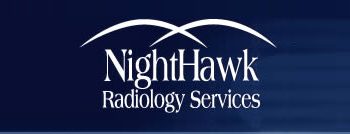
Home » NightHawk gets goodwill off its books
NightHawk gets goodwill off its books
Idaho company is one of latest in area to post big impairment charge

May 21, 2009
NightHawk Radiology Holdings Inc., of Coeur d'Alene, is one of the latest Inland Northwest companies to feel the financial sting of having to report a sizable write-down due to the economically depleted value of assets it was carrying on its balance sheet.
In its first-quarter financial results released on April 29, the publicly traded company, which provides radiology-related services to physicians and hospitals throughout the U.S., reported a noncash goodwill impairment charge of $68.7 million.
The charge dragged NightHawk to a net loss for the quarter of $52.6 million, or $1.97 a share, down from net income of $731,000, or 2 cents a share, in the first quarter of 2007. The company's adjusted net income, excluding the goodwill impairment and other non-cash charges, was $4 million, or 15 cents a share, down just slightly from $4.2 million, or 14 cents a share, in the year-earlier quarter. Its revenue in the latest quarter dipped a bit, to $38.8 million from $41.7 million in the year-earlier quarter, but its cash flow from operations increased about $400,000, to $6.2 million.
Goodwill refers to intangible assets on a company's balance sheet, and goodwill impairment refers to the mandated process of reducing the "carrying" value of those assets, when necessary, to match their fair market value.
Intangible assets can refer to things such as intellectual property, proprietary technology, good customer relations, or a strong brand name or market presence, as well as to the amount above book value that one company pays to acquire another.
Under accounting-standard changes adopted a number of years ago, businesses no longer can amortize goodwill over a period of up to 40 years, but rather must perform goodwill-impairment analysis annually, or more frequently if events or circumstances warrant it.
The recession is such an event, having depressed market values in virtually all industries, thus forcing sizable goodwill impairment charge-offs for businesses across the country.
NightHawk said in its quarterly earnings filing that it performed such impairment testing as of March 31 "and determined that the fair value of its recorded goodwill, estimated using discounted cash-flow analyses and reconciled to our market capitalization, was less than the carrying value." Based on that testing, it said, it concluded that its goodwill balance of $68.7 million was "fully impaired," and therefore recorded a charge-off for the entire amount.
Andrea Clegg, NightHawk's treasurer, says the goodwill the company had amassed stemmed largely from two big acquisitions in made in 2007, when it acquired The Radlinx Group, a Texas-based provider of teleradiology services, and Midwest Physician Services LLC, the business-services arm of St. Paul Radiology, of St. Paul, Minn.
"Simply given where our stock price was" as of March 31, and the negative impact of that share price on NightHawk's market capitalization, the company had no choice but to record the goodwill-impairment charge, Clegg says. The company's share price fell from around $10 last fall to a little over $2 in early March, but since then has rebounded to about $3.60.
Market capitalization is the total value of a public company's outstanding shares, determined by multiplying the number of shares by the current share price. Generally speaking, under what's known as Generally Accepted Accounting Principles, a company's net book value shouldn't greatly exceed its market cap.
In NightHawk's case, its book value was around $150 million, and its market cap was around $72 million, Clegg says. "Ours was such a big discrepancy that we took the opportunity to write down the goodwill. It just made sense," she says.
Clegg describes the goodwill-impairment charge as "kind of a double-edged sword." It's nice to get the impaired goodwill off your books, but at the same time the charge reflects a reduction in asset value that you'd prefer not to see, she says.
Other Spokane-area companies that have reported large goodwill-impairment charges since last fall have included AmericanWest Bancorp., the Spokane-based parent of AmericanWest Bank, and Sterling Financial Corp., the Spokane-based bank-holding company that owns Sterling Savings Bank.
AmericanWest posted a 2008 third-quarter net loss of $96.9 million, $82 million of which was a goodwill-impairment charge, and Sterling reported a fourth-quarter net loss of $356.3 million, $223.8 million of which was a goodwill-impairment charge.
NightHawk, which touts itself as the nation's leading provider of professional radiology-related services, has a large team of affiliated radiologists who it says serve medical groups and hospitals at about 1,560 sites, representing about 27 percent of all hospitals in the U.S.
Its doctors work from centralized reading facilities in the U.S., Switzerland, and Australia.
President and CEO David Engert said in a news release about the company's latest earnings report that despite the goodwill-impairment charge, "We are pleased with our adjusted operating results for the first quarter and our strong cash flow, even in a quarter that is typically one of our slowest and in a challenging economy."
The company said it expects second-quarter revenue in the range of $39 million to $41 million, and adjusted earnings per share to be in the range of 15 cents to 17 cents.
Latest News
Related Articles




